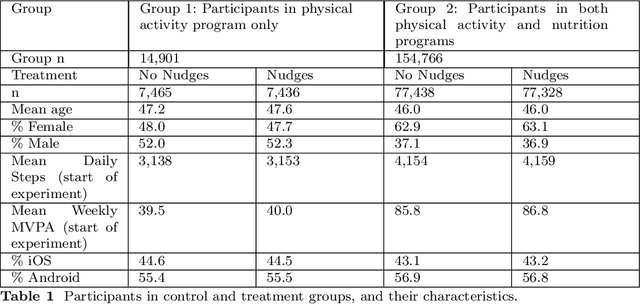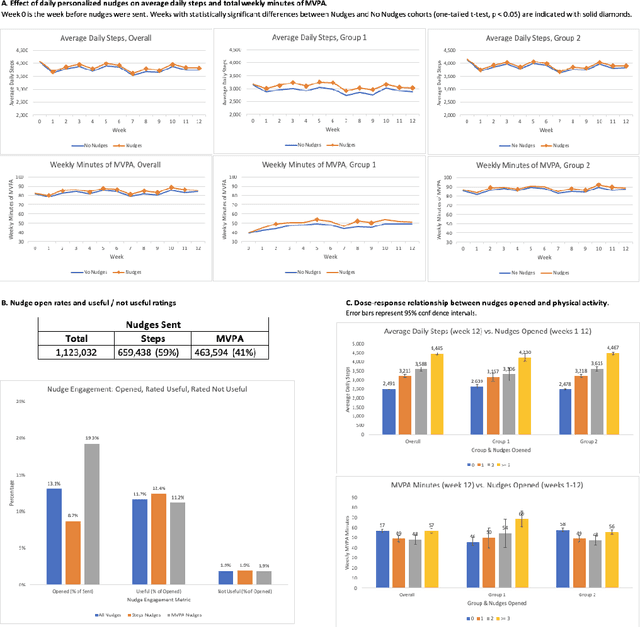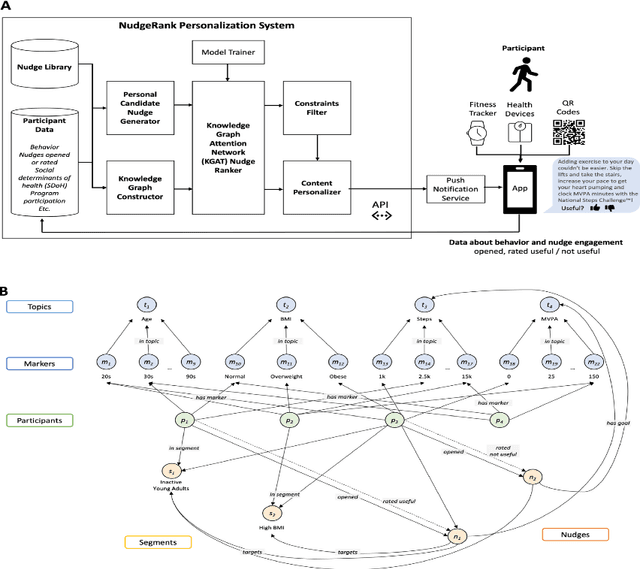Aloysius Lim
Co-Pilot for Health: Personalized Algorithmic AI Nudging to Improve Health Outcomes
Jan 19, 2024



Abstract:The ability to shape health behaviors of large populations automatically, across wearable types and disease conditions at scale has tremendous potential to improve global health outcomes. We designed and implemented an AI driven platform for digital algorithmic nudging, enabled by a Graph-Neural Network (GNN) based Recommendation System, and granular health behavior data from wearable fitness devices. Here we describe the efficacy results of this platform with its capabilities of personalized and contextual nudging to $n=84,764$ individuals over a 12-week period in Singapore. We statistically validated that participants in the target group who received such AI optimized daily nudges increased daily physical activity like step count by 6.17% ($p = 3.09\times10^{-4}$) and weekly minutes of Moderate to Vigorous Physical Activity (MVPA) by 7.61% ($p = 1.16\times10^{-2}$), compared to matched participants in control group who did not receive any nudges. Further, such nudges were very well received, with a 13.1% of nudges sent being opened (open rate), and 11.7% of the opened nudges rated useful compared to 1.9% rated as not useful thereby demonstrating significant improvement in population level engagement metrics.
Machine Learning Approaches for Type 2 Diabetes Prediction and Care Management
Apr 29, 2021



Abstract:Prediction of diabetes and its various complications has been studied in a number of settings, but a comprehensive overview of problem setting for diabetes prediction and care management has not been addressed in the literature. In this document we seek to remedy this omission in literature with an encompassing overview of diabetes complication prediction as well as situating this problem in the context of real world healthcare management. We illustrate various problems encountered in real world clinical scenarios via our own experience with building and deploying such models. In this manuscript we illustrate a Machine Learning (ML) framework for addressing the problem of predicting Type 2 Diabetes Mellitus (T2DM) together with a solution for risk stratification, intervention and management. These ML models align with how physicians think about disease management and mitigation, which comprises these four steps: Identify, Stratify, Engage, Measure.
 Add to Chrome
Add to Chrome Add to Firefox
Add to Firefox Add to Edge
Add to Edge